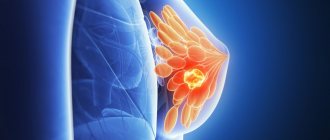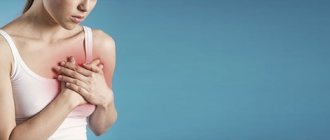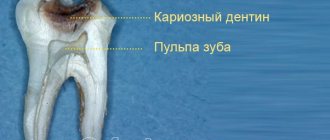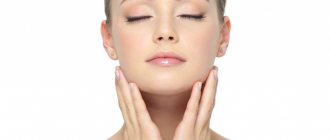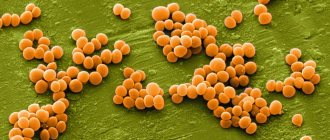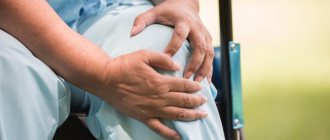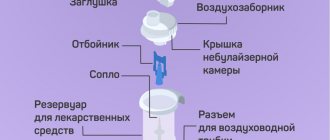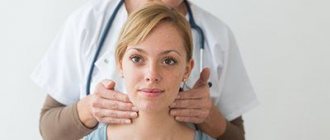Causes of mastopathy
Mastopathy is a fibrocystic disease that is accompanied by tissue changes. It occurs as a result of a violation of the normal balance of hormones.
The cause of the onset of the disease is a neurohumoral factor. “Neuro” means that disorders of the psycho-emotional state are triggered as a trigger for the disease: neuroses, psychoses. “Humoral” shows that the underlying causes lie in the work of biologically active substances (in this case, hormones).
How to use the gel
Treatment of diffuse mastopathy always extends over a long period; as a rule, the standard course of therapy lasts 3-6 months. "Progestogel" is designed for a maximum of 3 months. After this, you need to take a break (at least 30 days), if necessary, and on the recommendation of a doctor, repeat the cycle.
The ointment is applied with a special applicator, which is sold along with the gel. 1 application is 2.5 g. The product is evenly distributed over the surface of the mammary gland, the procedure is done carefully, since the gel cannot be rubbed into the skin. After this, the woman must wait until the drug is completely absorbed - only after that can she get dressed. This is due to the fact that underwear or other clothing can wash off part of the ointment and then the required concentration of progesterone will not be achieved. Progestogel is applied twice a day, preferably at even intervals, that is, every 12 hours. If the medicine is prescribed for mastopathy, it is used daily, if it is used to relieve premenstrual pain, from the 16th to the 25th day of the cycle.
Hormonal therapy in the treatment of mastopathy
Based on a study of hormonal status, women are prescribed treatment with drugs against mastopathy - progestogens, androgens, antiestrogens and drugs that inhibit prolactin production.
Gestagens
Pathogenetically, the most effective treatment is with progesterone preparations. They have a positive effect on diffuse hyperplastic processes in the tissues of the mammary glands. Under their influence, proliferative activity in the epithelium slows down, the density of the glandular and fibrous components decreases. A side effect of using such drugs is menstrual irregularity.
Recently, the most popular drugs prescribed for mastopathy are oral gestagens in tablets “Duphaston” and “Utrozhestan”. These are analogues of natural progesterone, safe for health during long-term treatment.
Antiestrogens
Hyperestrogenism is one of the causes of mastopathy. Antiestrogens are successfully used as an effective remedy. The most effective for these purposes are Fareston and Tamoxifen, which even treat some forms of breast cancer.
Androgens
Women over 45 are prescribed to take medications in the form of androgens (male sex hormones). The complex drug Testobromlecid contains methyltestosterone, bromizal and lecithin, which have a good effect on the central nervous system.
Prolactin inhibitors
Bromocretin is usually prescribed to suppress prolactin production. This drug for mastopathy and nodules normalizes the cycle, helps reduce pain and reduce the size of nodules in the breast tissue. They also recommend products such as Norprolak and Cabergoline, which have fewer side effects.
Combined oral contraceptives
These drugs are used in the treatment of young women, usually under 35 years of age. The mechanism of their action is based on the blockade of ovulation. This allows you to stabilize the cyclic fluctuations of sex hormones and leads to the reverse process of the development of mastopathy. This group includes “Danazol”, “Jess”, “Microlut”. As a rule, the first course is prescribed for 3 months.
What forms can fibrocystic disease have?
Most often, mastopathy is diffuse in nature and manifests itself:
- predominance of the glandular component (edema, proliferation of glandular tissue) - the most favorable form;
- the predominance of the fibrous component (swelling, enlargement of interlobular connective tissue septa, their pressure on the surrounding tissue, narrowing of the lumen of the ducts, up to their complete fusion;
- the predominance of the cystic component (the presence of one or more elastic cavities filled with liquid contents, clearly demarcated from the surrounding tissues of the gland);
- mixed form (increased number of glandular lobules, proliferation of connective tissue interlobar septa).
A less favorable form of mastopathy is nodular. In this form, as a rule, against the background of the changes described above, there is the presence of one or more nodes, most often representing an adenoma or fibroadenoma.
Fibroadenoma is a fairly common benign tumor of the mammary glands. Occurs at any age, but more often in 20-40 years. In some cases, especially in adolescents, fibroadenomas can grow quickly and reach significant sizes (up to 10-15 cm). According to various authors, the degeneration of benign fibroadenoma into a malignant breast tumor occurs in 1.5-2%.
Also, the nodular form can be represented by atypical hyperplasia (proliferation of glandular tissue). The percentage of degeneration of this nodular formation increases to 20%.
It is also worth recalling a very special manifestation of mastopathy - bloody discharge from the nipple of the mammary gland. As a rule, the cause of such discharge is an intraductal formation (papilloma), which can ulcerate and bleed. Such symptoms should be a serious cause for concern for a woman and promptly seek medical help.
Non-hormonal therapy
The purpose of using non-hormonal drugs is to improve microcirculation in the tissues of the mammary glands, eliminate venous stagnation, and reduce pain symptoms. Non-hormonal drugs for mastopathy effectively eliminate the signs of the disease.
Drugs affecting the central nervous system
The use of neuroleptics, tranquilizers, and sedatives is justified by the need to relieve nervous tension that provokes the growth of cysts (motherwort, valerian).
Preparations containing iodine
To treat mastopathy, doctors often prescribe iodine-containing drugs: Mamoclam and Klamin. The drugs normalize the balance of sex and thyroid hormones and reduce precancerous processes in the mammary gland.
Homeopathic remedies and herbal medicine
Medicines in this group have an anti-inflammatory analgesic effect on the body and reduce swelling in the mammary glands. These include homeopathic remedies “Mastodinon” and “Mastopol”, herbal medicine “Mammoleptin”.
Liver support medications
The liver plays an important role in hormonal metabolism. Changes in the mammary glands are associated with hyperestrogenization caused by liver dysfunction. Therefore, this organ must be supported with antioxidants, vitamins, microelements, adaptogens, choleretic agents, and immunomodulators. The most effective medications for this are hepatoprotectors (Liver Caps, Silymarin, Amino 1500, Nirocil, etc.).
Enzyme therapy
Metabolic enzymes are good for detoxifying the body and producing energy. Enzymes (enzymes) have anti-edematous, anti-inflammatory, analgesic effects. This group includes the drugs “Biozym”, “Wobenzym”, Vitazim.
Diuretics
Rosehip tincture, herbal teas and other diuretics are effective for relieving swelling.
Prescriptions and contraindications
Most often, Progestogel gel is prescribed for the treatment of diffuse mastopathy. Before using the drug, you need to consult a doctor, because topical medications are only part of a complex therapy). In addition, the product is excellent for treating mastodynia (pain in the mammary glands) of various origins. For example, it is prescribed for soreness of the mammary glands caused by the use of oral contraceptives, as well as during PMS. “Progestogel” is recommended during puberty and premenopause, if hormonal changes in the body greatly affect your well-being. Despite the fact that the gel is used with great caution during pregnancy, doctors often recommend it to relieve pain in the 1st trimester. In the 2nd and 3rd trimester, it is better to avoid applying Progestogel. Before using the drug, you should definitely consult a doctor, because not all forms of mastopathy can be treated with the gel. In case of nodular disease (with the formation of large cysts) and tumors of an unknown nature, the ointment cannot be used - the effect of progesterone can worsen the course of the disease. Other contraindications include:
- Liver diseases.
- Risk of blood clots.
- Diabetes.
- Arterial hypertension (hypertension).
- Epilepsy.
- Bronchial asthma.
Since the cream can cause allergies, it is recommended to apply it to a small area of skin on the wrist or elbow before use. If there is no redness, itching or general deterioration in health, apply on the mammary glands.
Indications
Prevention of mastopathy of the mammary glands is regular self-examination, which should be performed once a month. Self-feeling of the mammary glands must be carried out in a standing and lying position; it is also important to examine the condition of the nipples and check for any discharge from them. Regular preventive visits to a gynecologist and mammologist are also recommended to prevent the occurrence and development of mastopathy. Control of hormonal levels, properly selected nutrition, diet and regular physical activity are indications for mastopathy.
The list of reasons contributing to the occurrence and development of mastopathy makes it difficult to prescribe an unambiguous prevention regimen. The following should be avoided: stress and depression (as a preventive measure, it is recommended to take medicinal sedative medications - valerian, motherwort), creating a cozy and calm environment, positive thinking. Also indications for mastopathy of the mammary glands are:
- well-thought-out nutrition without excessively fatty and difficult-to-digest foods;
- control of the absence of excessive body weight, obesity, but mono-diets and untested methods of weight loss are contraindicated;
- One of the negative factors for women is caffeine consumption. Women need to limit or exclude it from the diet, and not drink strong coffee in the morning before meals.
Diagnostics
Your doctor can diagnose fibrocystic breast changes (mastopathy) after reviewing your symptoms and performing a physical examination. The professional may ask whether symptoms change over the course of a month, as some women find that they become more noticeable just before their period. During the exam, the doctor will feel each breast to check for lumps or abnormal areas. Typically, fibrocystic changes are associated with the formation of lumps that are not attached to the surrounding tissue. The lumps are usually mobile when the doctor palpates them.
Sometimes the lump may appear harder than usual, or your doctor may suggest additional tests to rule out another condition, such as cancer. Having a mammogram or breast ultrasound can help them make a diagnosis. These imaging tests show more detailed information about the breast tissue. If your doctor has concerns, he may recommend a biopsy to rule out cancer.
Gel effectiveness
The gel has undergone clinical trials, so there are accurate statistics on the effectiveness of the product.
- In 80% of women diagnosed with fibrous mastopathy, the pain characteristic of this disease disappears already on the second day of applying the cream.
- After a full course of Progestogel (3 months), symptoms disappear in 90% of patients - pain, hypersensitivity, swelling and discomfort go away.
Judging by the reviews of Progestogel gel for mastopathy, it really helps relieve symptoms. Those who use the gel during PMS, premenopause, and puberty, when the menstrual cycle has not yet stabilized, also speak well of it. In these cases, the remedy successfully controls the symptoms, and for most, breast tenderness does not return. But with severe diffuse mastopathy, the gel, according to many women, helps only for the period of treatment. Pain and heaviness return 2-3 weeks after completion of the course. Doctors explain this low effectiveness of the drug by saying that it was used incorrectly. The use of Progestogel as the only treatment for mastopathy is unacceptable, because it does not affect the cause of the disease and does not correct the synthesis of female sex hormones. Therefore, it is quite natural that after progesterone stops entering the body, mastopathy returns.
Advantages of treatment at the clinic of JSC "Medicine"
JSC "Medicine" (clinic of academician Roitberg) is a multidisciplinary medical center that offers a range of services, including operations by experienced surgeons and hospital treatment.
Treatment of mastopathy of the mammary glands in women at the clinic of JSC "Medicine" has the following advantages:
- availability of a license to carry out medical activities, receive patients, perform operations;
- each doctor has qualifications and significant experience, and their achievements are outlined on the medical center’s website;
- high-tech equipment for conducting analyzes and examinations to establish the underlying causes of pathological conditions;
- cooperation with insurance companies, loyalty programs for corporate clients.
Doctors conduct a thorough analysis of the patient’s health status, identify the causes that led to the occurrence of mastopathy of the mammary glands, prescribe effective methods in a hospital setting and take modern medications that stabilize the patient’s condition.
Treatment
No treatment is required if there is no pain. To reduce its intensity, the following options can be used:
- Supportive therapy such as diet changes, a supportive bra, or warm compresses.
- Over-the-counter pain relievers such as ibuprofen.
- Hormonal drugs for severe symptoms.
- Needle aspiration to remove fluid from the cyst.
- A fine needle biopsy to remove tissue from the tumor.
- Biopsy to remove the entire tumor.
